Key Takeaways
- Fly bites can cause redness, swelling, and irritation.
- Species like horse flies and black flies have painful bites.
- Prevent bites with repellents, clean areas, and protective clothing.
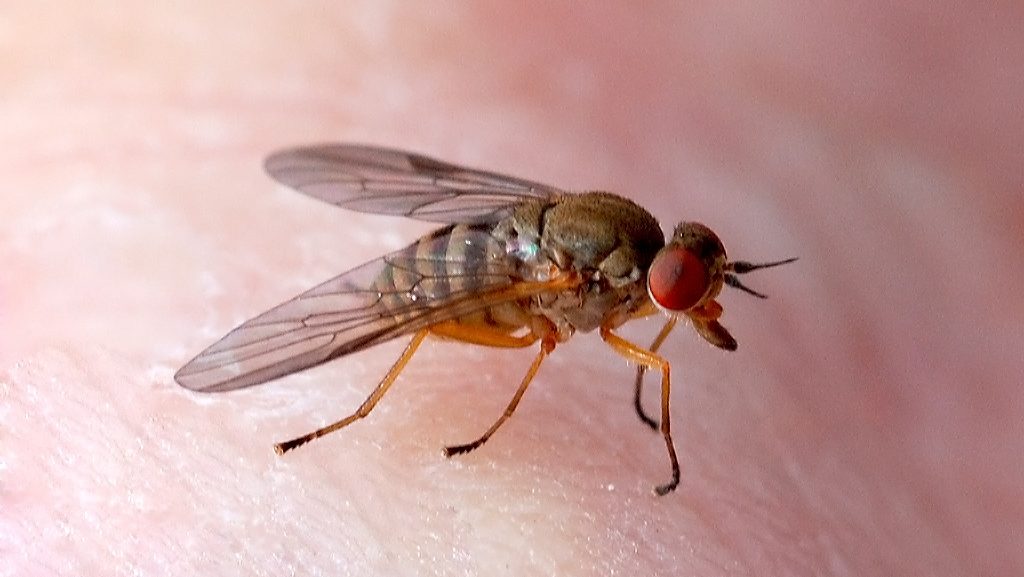 Flies aren’t only a buzzing annoyance, some fly species bite, leaving behind painful, itchy welts on humans and pets. While most fly bites are harmless, certain species can transmit diseases, cause allergic reactions, or lead to skin infections. Being aware of the signs of fly bites and understanding how to prevent them can protect you and your pets from discomfort.
In this article, we’ll break down how to identify fly bites, their effects on humans and pets, and effective ways to prevent them.
Flies aren’t only a buzzing annoyance, some fly species bite, leaving behind painful, itchy welts on humans and pets. While most fly bites are harmless, certain species can transmit diseases, cause allergic reactions, or lead to skin infections. Being aware of the signs of fly bites and understanding how to prevent them can protect you and your pets from discomfort.
In this article, we’ll break down how to identify fly bites, their effects on humans and pets, and effective ways to prevent them.
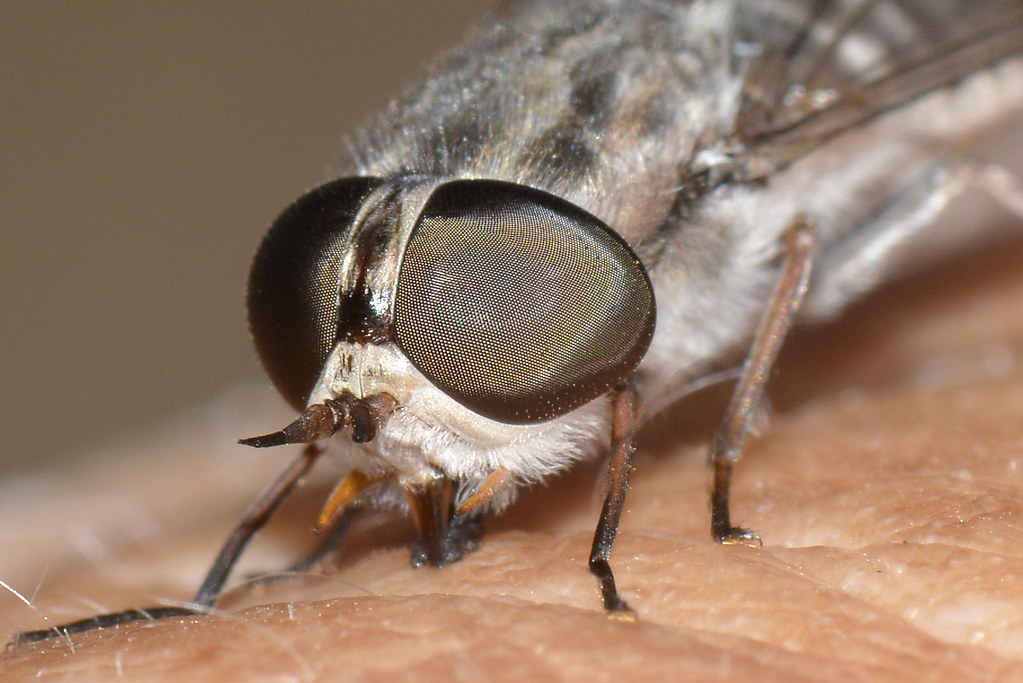

Not getting a solution?
Get your free pest control estimate today!What Do Fly Bites Look Like?
Fly bites are more painful than mosquito bites due to the sharp mouthparts flies use to cut the skin. Identifying fly bites correctly can help you take appropriate measures for relief and prevention.Characteristics of Fly Bites
-
Shape: Typically circular or oval, depending on the bite location.
-
Size: Small to medium welts, around 1/8 to 1/4 inch in diameter.
-
Color: Red or reddish-brown, often with a darker center.
-
Itching and Pain: Causes itchiness, burning, or stinging sensations at the bite site.
-
Swelling: Bites may result in swelling that lasts for hours or even days.
-
Infection: In severe cases, bruising or infection may develop, especially if scratched.
Do’s and Don’ts for Fly Bites
Fly bites are common but can cause itching, swelling, and, in some cases, infections. While most bites of fly are harmless, proper care is essential to prevent complications. Knowing what to do (and what not to do) can help you treat the bite effectively and avoid unnecessary discomfort. Here are the essential do’s and don’ts for fly bites.Do’s & Don’ts for Treating Insect Bites
DO'S
-
Wash the bite with soap and water to reduce the risk of infection.
-
Use a cold pack or ice wrapped in a cloth to reduce swelling and pain.
-
Apply calamine lotion or hydrocortisone cream to relieve itching.
-
If itching or swelling persists, consider taking an over-the-counter antihistamine.
-
Watch for increased redness, pus, or warmth around the bite, and seek medical attention if these symptoms appear.
DON'TS
-
Don’t scratch the bite as it can cause skin damage and increase the risk of infection.
-
Don’t apply heat as it may increase inflammation and discomfort. Stick to cold compresses.
-
Don’t ignore severe symptoms and seek medical help if you experience symptoms like severe pain, swelling, or difficulty breathing.
-
Don’t use unapproved remedies. Avoid applying random kitchen items like vinegar, garlic, or toothpaste on the bite.
-
Don’t leave the bite uncovered. If you’re outdoors, cover the bite to prevent further irritation or contamination.
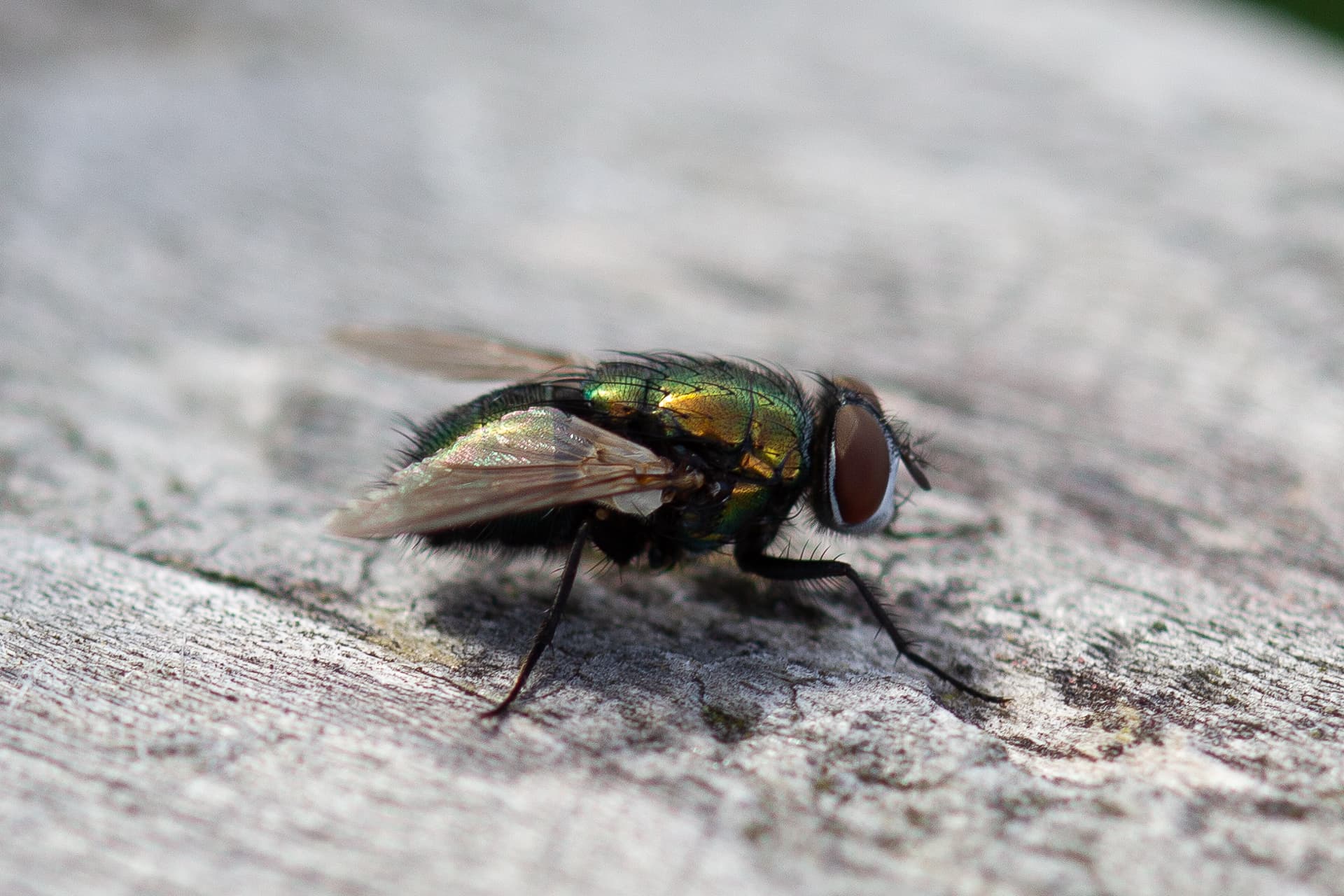
Why Do Flies Bite Humans?
Flies bite humans primarily to feed on blood, which provides essential protein for egg production in certain species of female flies. While house flies don’t bite, species like horse flies, black flies, stable flies, and deer flies are known for their painful bites. Flies are drawn to humans due to body heat, the carbon dioxide we exhale, and natural body odors, especially after physical activity. They often target exposed areas like arms, legs, face, and neck, as well as ankles and feet, even biting through thin clothing like socks.What Do Dog Fly Bites Look Like?
Dogs that spend time outdoors are more vulnerable to fly bites, especially around sensitive areas like their ears, belly, and tail, as flies are attracted to areas with thin skin and less fur. Fly bites on dogs typically appear as small red bumps or welts, often seen on the belly, ears, or legs. Excessive scratching can cause these bites to develop into crusty sores or scabs, while the affected skin may become inflamed, swollen, and tender. Flies tend to bite dogs in areas with less fur and thinner skin, such as the ears, belly, underside, and legs. Dogs lying on the ground are more likely to be bitten on the belly and paws due to exposure to fly-infested areas.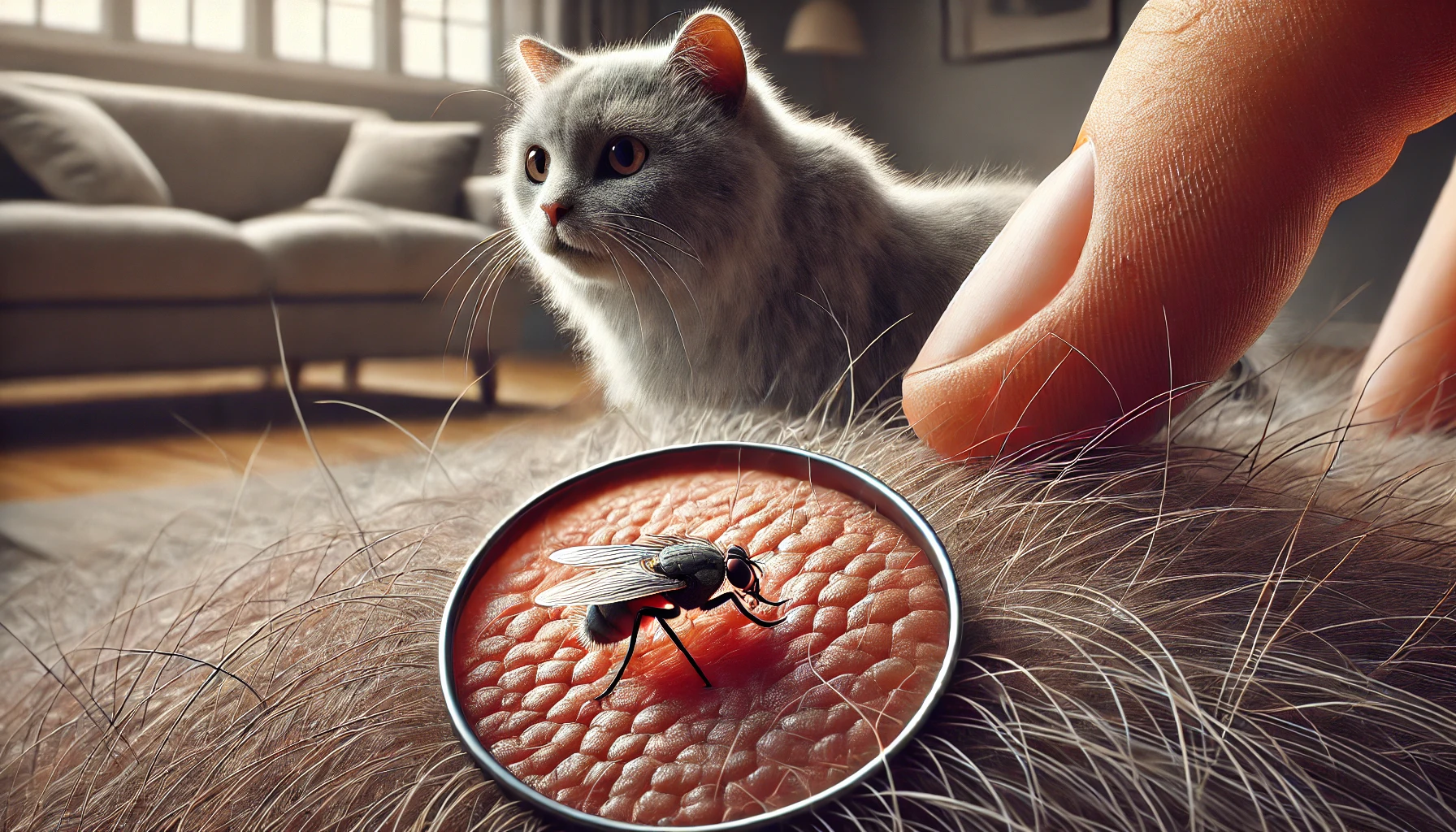
What Do Cat Fly Bites Look Like?
Fly bites on cats often appear on areas with thinner fur, such as the ears and face. Since cats are frequent groomers, fly bites can be harder to spot, but visible signs include small red bumps or spots on the ears and face. Cats may respond to the irritation by excessively grooming or scratching, which can result in scabs or crusts if left untreated. Flies typically target areas where the fur is thinner, with the ears and face being the most vulnerable. Cats with a lot of outdoors playtime are also at risk of bites on their paws and legs, as these areas come into contact with fly-infested surfaces.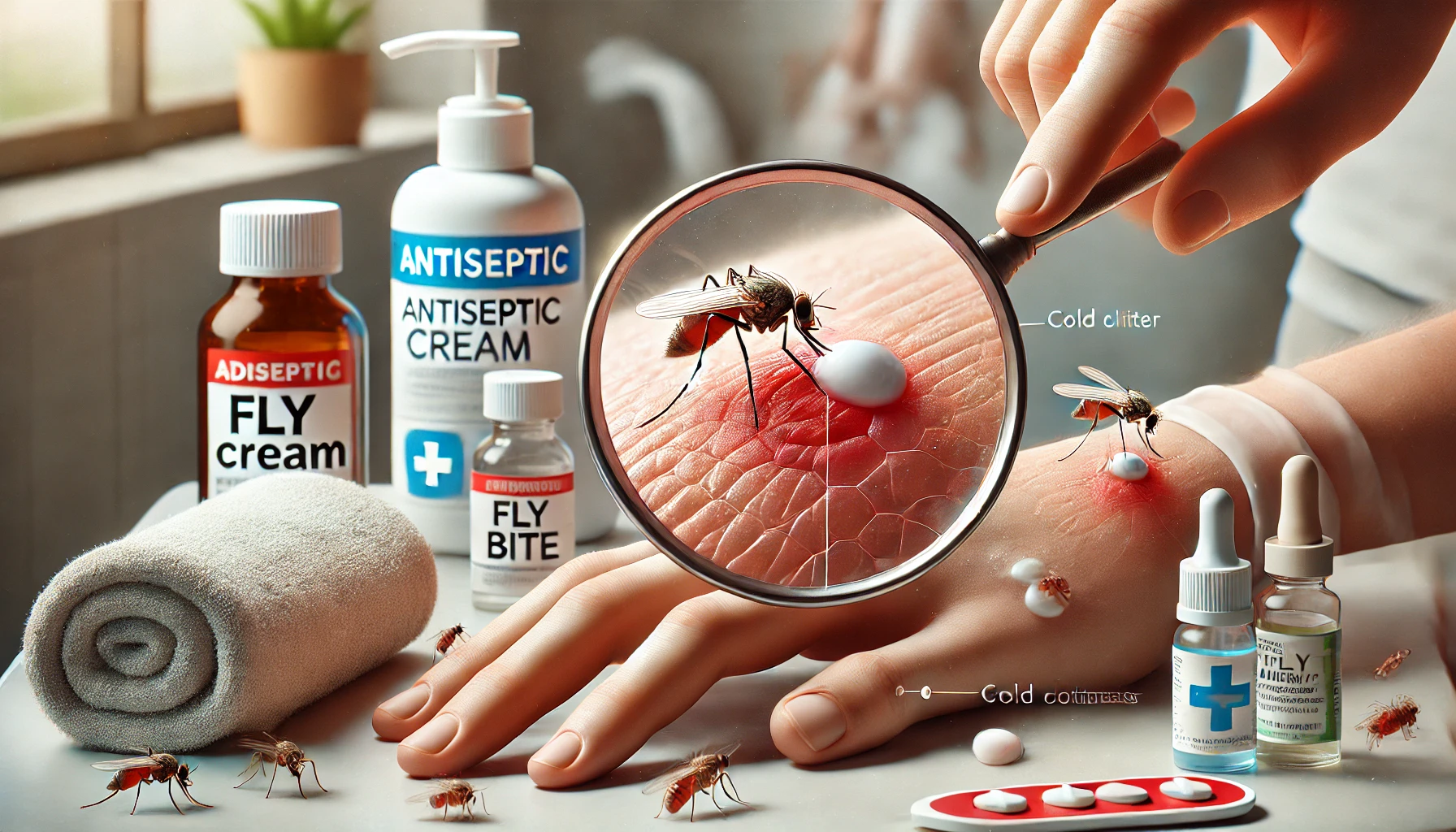
How to Treat Fly Bites
Treating fly bites promptly can reduce symptoms and prevent infection for both humans and pets. For humans, start by cleaning the bite with soap and water to minimize infection risk. Use a cold compress to reduce swelling and pain, and use anti-itch creams to relieve discomfort. Over-the-counter antihistamines can provide additional relief for severe itching or swelling. For pets, wash the bite with mild soap and water, then apply pet-safe topical creams to reduce swelling and itching. If the bite becomes infected or severe swelling occurs, it’s best to consult a veterinarian for proper treatment.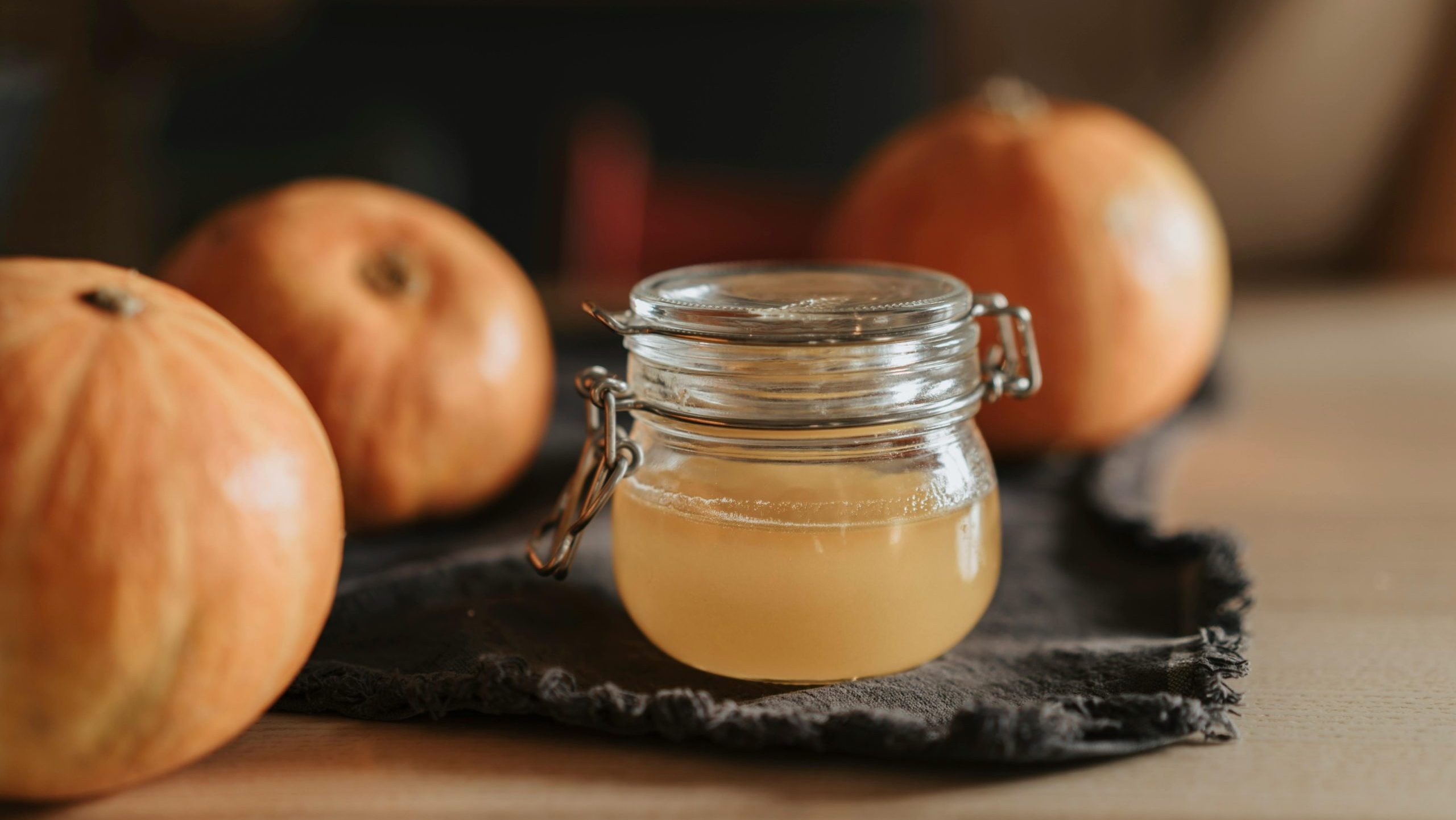
How to Prevent Fly Bites on Humans and Pets
Protecting yourself and your pets from fly bites is essential for avoiding discomfort, irritation, and potential disease. Follow these tips to reduce exposure to flies:Tips to Protect Against Flies
-
Wear protective clothing to cover exposed skin, especially outdoors.
-
Apply insect repellents with DEET or natural oils like citronella or eucalyptus.
-
Avoid sweat and strong odors by showering after outdoor activities.
-
Install window screens and mosquito nets to block flies from entering your home.
-
Clean outdoor areas by removing pet waste and garbage to reduce fly breeding.
-
Pet-safe fly repellents or fly-repellent collars approved by veterinarians should be used.
-
Limit outdoor time during peak fly activity in the early morning and late afternoon.
-
Wash pet bedding regularly to remove fly eggs, larvae, or hidden pests.
Myths and Facts About Fly Bites
Fly bites are often misunderstood, leading to myths that can impact how people respond to them. Here are some common misconceptions and the facts you should know:| Myth | Fact |
|---|---|
| Fly bites are harmless and cause no issues. | Fly bites can cause discomfort and may lead to infections. |
| All fly bites look the same. | Different flies cause different reactions and appearance of bites. |
| Fly bites only affect animals. | Fly bites can affect both humans and animals. |
| Flies bite only for blood. | Some flies bite for blood, while others may bite for other fluids. |
| If a fly bite is itchy, it’s not serious. | Itchy fly bites can sometimes lead to more severe reactions or infections. |





